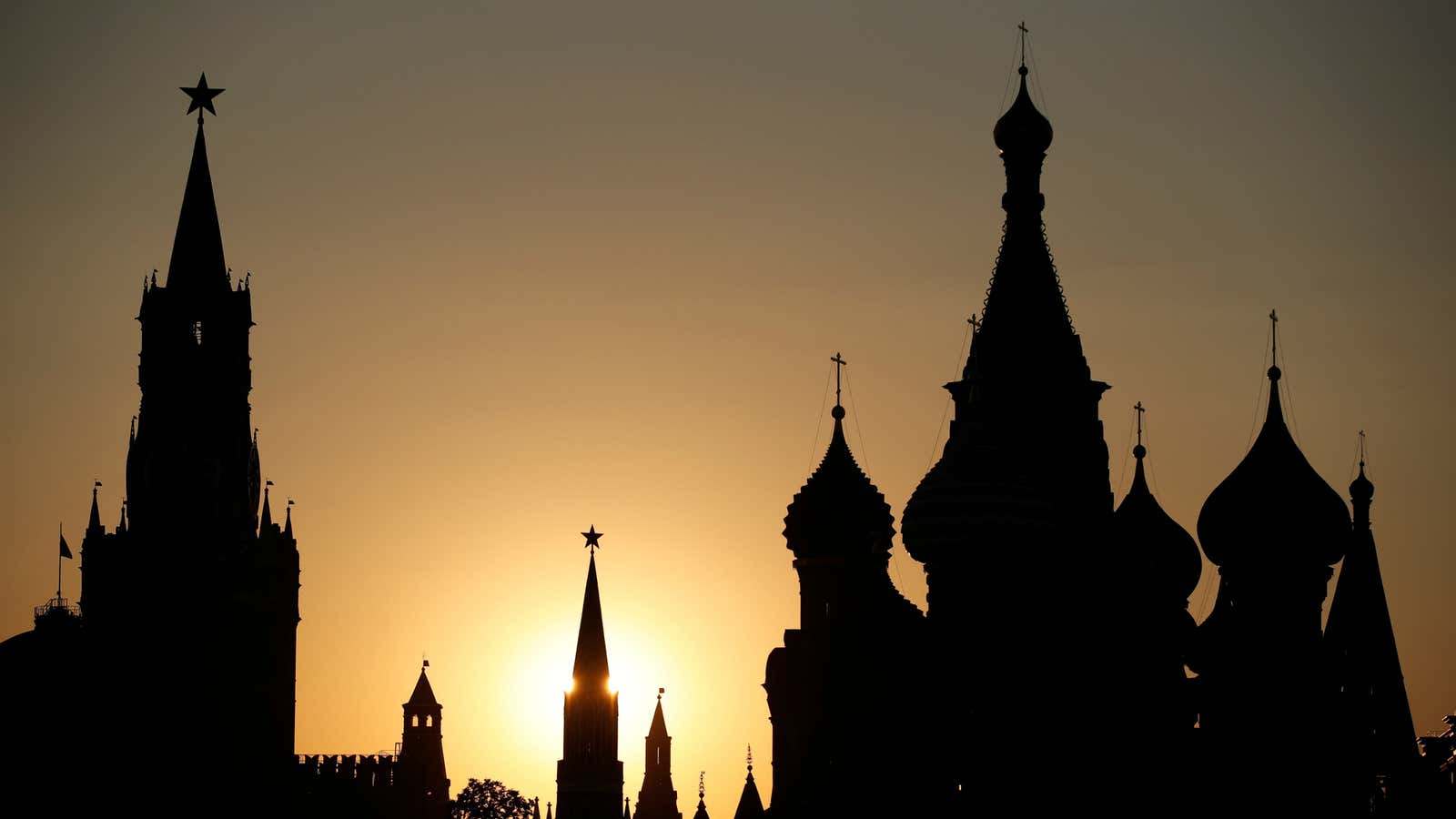The UK’s investigations into so-called fake news and disinformation on Facebook and other social media platforms have attracted keen interest in Russia. Moscow IP addresses (pdf) were the top visitors to a British government webpage discussing a report published last year, followed by London and then Saint Petersburg.
The IP address data were published today in the UK House of Commons’ final report on disinformation, part of an 18-month review covering privacy rights as well as election interference.
The committee has published eight reports on digital disinformation in total. In today’s publication, it detailed how an October response by the government (pdf) to earlier findings received 1,290 unique page views as of Nov. 30, with more of than 60% of those from foreign IP addresses. More than half were from Russia, and most were new visitors that hadn’t been to the UK parliament’s website before. By comparison, about 80% of visits to government reports typically come from IP addresses in the UK.
What did readers in Russia find so compelling? The government response in October said the “Russian state promulgated at least 38 false disinformation narratives around” the nerve agent attack in Salisbury, England, where the Kremlin allegedly tried to poison a former Russian spy and his daughter. Prime minister Theresa May had earlier said that Russia is “deploying its state-run media organizations to plant fake stories and photo-shopped images in an attempt to sow discord in the West and undermine our institutions.”
The UK also recommended in October that information about risks and best practices to contain Russian interference should be shared with officials around the world. The government said it had already worked with the G7 coalition to create a “Rapid Response Mechanism” meant to curb disinformation campaigns and is supporting NATO communication efforts while working with Polish authorities on similar measures. The report also indicated that Britain plans to spend £100 million ($129 million) in the next five years to counter Russian disinformation around the world, and is increasing spending on its BBC World Service (“significantly,” in the case of its Russia news service).
“The Government has taken steps to ensure that there is a coordinated structure across all relevant UK authorities to defend against hostile foreign interference in British politics,” the UK said in October. ”There has, however, been no evidence to date of any successful foreign interference.”
Russia has been widely blamed for trying to meddle in polls. The Saint Petersburg-based Internet Research Agency is accused of assembling a legion of fake accounts on Twitter, Facebook, and Google to blast out toxic content meant to sway elections and turn citizens against each other. Hundreds of false Twitter accounts run from the Russian city reportedly sought to whip up anti-EU and anti-Islamic sentiment in the UK.
Today’s report (pdf) singled out Facebook’s role in disinformation in particular, naming the 15-year-old social media company more than 500 times in the 111-page document, and recommending that it be regulated. “Some malicious forces use Facebook to threaten and harass others, to publish revenge porn, to disseminate hate speech and propaganda of all kinds, and to influence elections and democratic processes,” the committee’s authors wrote. “Facebook, and other social media companies, are either unable or unwilling to prevent” much of it, they said.
